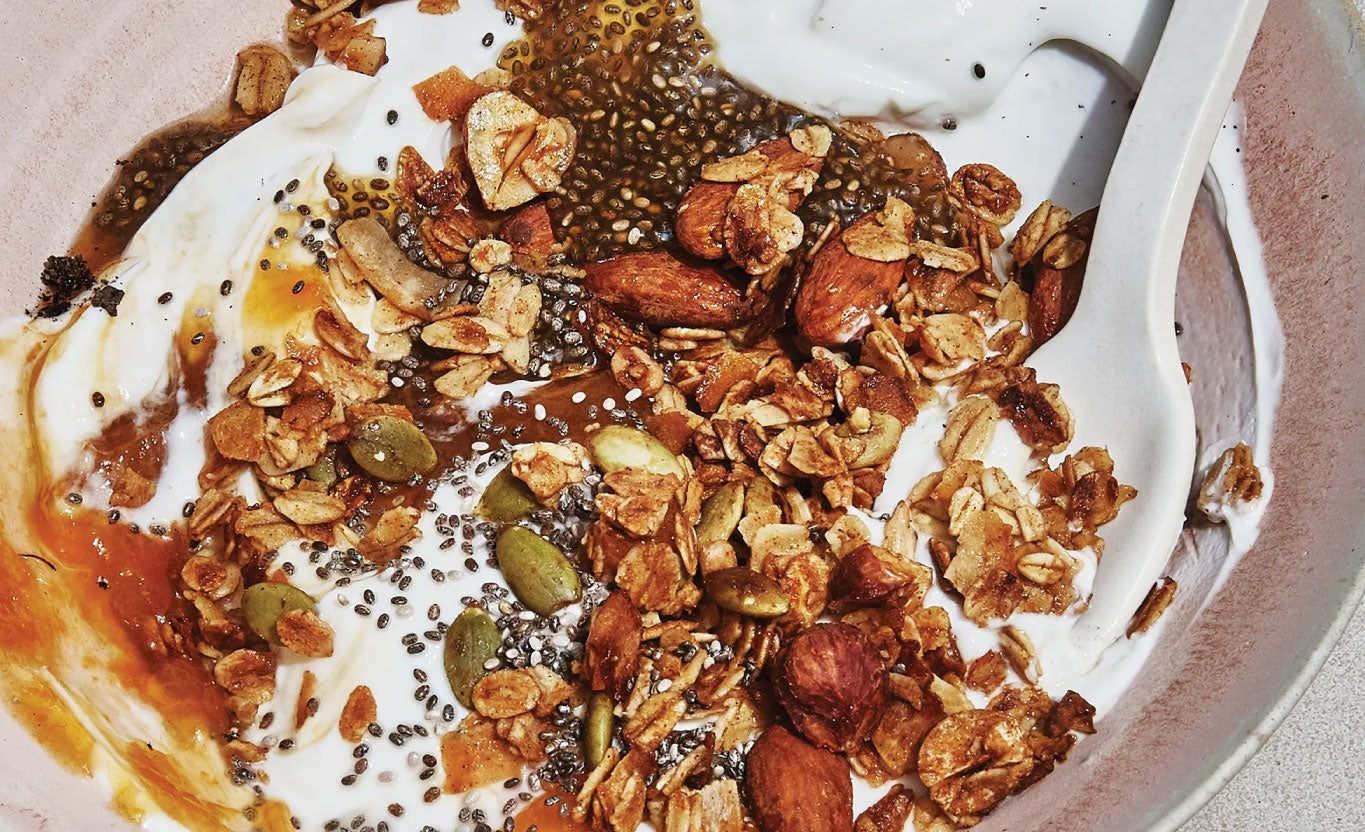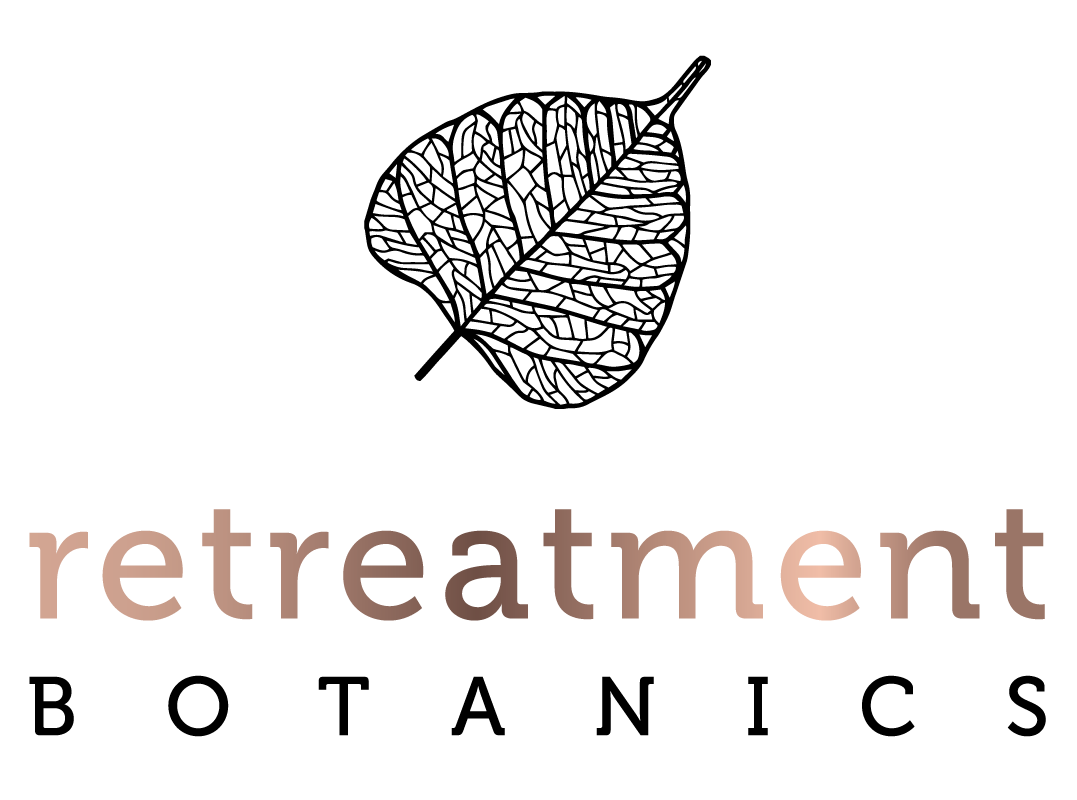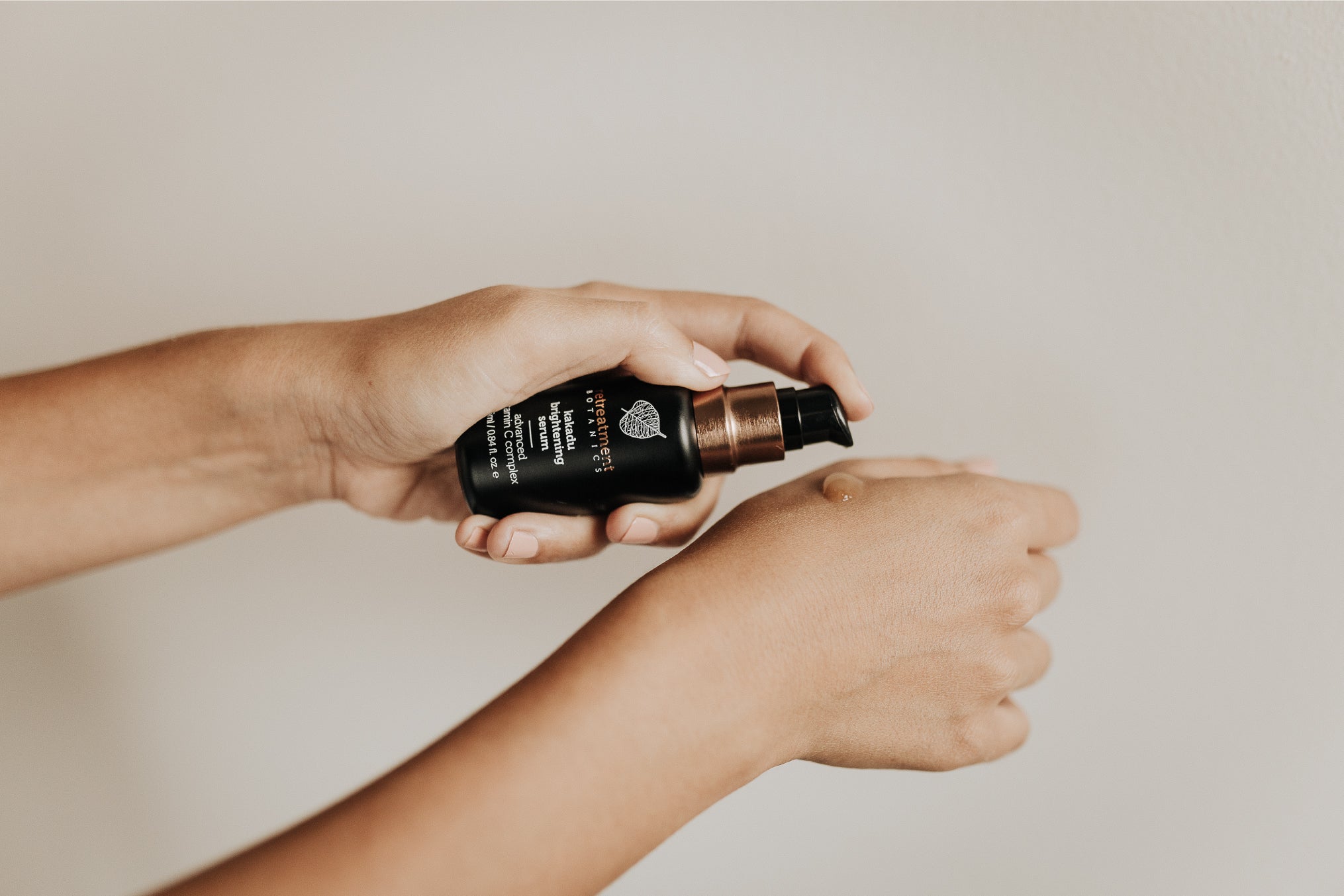
Foods to manage hormones throughout menopause
Perimenopause can be the pits. From staring at the ceiling at 3am to belly bloat and weight gain, the hormonal changes taking place can really make you feel out of whack. But did you know that there are some ways that you can help your body naturally manage hormonal changes and boost overall health after 40?
Lisa Walker, co-founder of Eir Women, spoke with Registered Nutritionist Laura Jennings to discuss the best foods and ingredients to include in your diet during this life stage. With these expert insights, you’ll discover how to feel your best during this very busy and hormone-charged stage of life.

Our top tips for diet changes and foods for focus.
PROTEIN
Boosting our protein intake during this phase is crucial, as protein fuels the production of neurotransmitters and hormones essential for our bodies. Not only that, but eating protein evenly throughout the day helps curb cravings and keeps blood sugar levels stable, as protein breaks down into glucose more gradually compared to carbohydrates and fats.
This steady release can prevent mood swings associated with fluctuating blood sugar levels, helping with emotional balance. Aim for 30g+ protein per meal to ensure you are consuming enough for growth, repair and stabilising processes.
Protein can come from many sources, so make sure you keep some variety so things don’t get boring.
- Chicken and Turkey are lean and rich in iron and B Vitamins.
- Fish and seafood include omega-3 fatty acids, perfect for an anti-inflammatory diet.
- Eggs are rich in choline, key for memory regulation.
- Yogurt, cottage cheese and milk are rich in calcium and vitamin D, crucial for bone health.
- Beans, lentils and chickpeas include lots of fibre, which helps stabilise blood sugar levels.
- Nuts and seeds include healthy fats and fibre, for heart health and weight.
- Tofu, tempeh and edamame contain phytoestrogens (see below!)
- Protein powder can be added to smoothies or porridge for another protein boost.
PHYTOESTROGEN-CONTAINING FOODS
Phytoestrogens mimic oestrogen in the body, helping to balance hormone levels. Women who consume high amounts of soy foods often experience fewer hot flashes (pass me some NOW!). This benefit is linked to isoflavones (a type of phytoestrogen) in soy, which possess mild oestrogen-like properties. Incorporating soy into the diet is associated with increased bone density, which is protective against age-related muscle mass loss (which is more likely to occur in late perimenopausal women, as women lose approximately 25% of bone mass).
Sources: Tofu, soy products, flaxseeds, sesame seeds, chickpeas and lentils.
FIBRE
Fibre is an essential part of the diet, crucial for weight management and overall gut and mental health. It feeds our gut microbes (a natural prebiotic), and a lack of fibre can lead to gut dysbiosis—an imbalance where harmful bacteria outweigh beneficial ones. This imbalance can cause leaky gut syndrome, allowing pathogens into the bloodstream and leading to inflammation, bloating, and poor mental health.
Fibre helps lower LDL (bad) cholesterol levels, reducing the risk of cardiovascular disease—a heightened concern during and after perimenopause. Additionally, fibre slows the absorption of glucose, aiding in the maintenance of stable blood sugar levels and reducing the risk of insulin resistance and type 2 diabetes.
Sources: Fruits, vegetables, whole grains (such as oats, quinoa, and brown rice), legumes, and nuts and seeds like chia, hemp, and flax.
HEALTHY FATS
Healthy fats act as a natural lubricant in the body. Consuming ample amounts of omega-3 fats can help alleviate symptoms of "drying out" during perimenopause, such as vaginal dryness and dry, brittle hair. Fats are essential to hormone production, including oestrogen and progesterone, which fluctuate during this period.
Sources: Fatty fish (salmon, mackerel, sardines), flaxseeds, chia seeds, and walnuts.
PROBIOTICS
A healthy gut microbiome is crucial for hormone metabolism and preventing hormonal bloating. Probiotics, such as Lactobacillus and Bifidobacterium, are beneficial bacteria that enhance the diversity of gut microbes and lower the ratio of harmful bacteria.
Sources: Yogurt, kefir, miso, sauerkraut, and kimchi.
OTHER INGREDIENTS TO ADD INTO YOUR DIET
Chasteberry: Chasteberry, also known as Vitex agnus-castus has shown success in clinical trials for reducing menopausal symptoms related to blood vessel constriction or dilation, such as hot flashes, night sweats, heart palpitations, and changes in blood pressure.
California Poppy: California poppy (Eschscholzia californica) seeds and extracts are known for their calming effects, which help reduce anxiety—a common symptom during perimenopause due to hormonal fluctuations. The sedative properties of California poppy can improve sleep quality, promoting relaxation and better sleep for women experiencing disrupted sleep. Unlike some prescription medications for anxiety and sleep, California poppy is a safer long-term alternative as it doesn't have the addictive properties of other sleep promoting medications.
Fennel seeds: Fennel seeds are known for their ability to reduce bloating and water retention. They have diuretic properties that promote the elimination of excess fluids from the body.
Vitamin B: The B vitamins, including B6, B12, and B9 (folate), play crucial roles in converting food into energy, supporting red blood cell formation, moving oxygen around the body and maintaining brain function. These vitamins help combat fatigue and boost overall energy, making them vital for managing the increased tiredness often experienced during perimenopause.
Vitamin D: As oestrogen levels decrease, the risk of bone loss and osteoporosis rises. Vitamin D plays a crucial role in calcium absorption, vital for maintaining strong bones and density. It also influences serotonin production, a neurotransmitter crucial for mood regulation. Insufficient vitamin D levels may contribute to mood swings, anxiety, and depression, common during perimenopause. While sunlight exposure is the primary source of vitamin D synthesis in the skin, factors like sunscreen, clothing, and darker skin tones can hinder this process. Apart from sunlight, vitamin D can be sourced from fatty fish, fortified foods, and supplements.
Ginko Biloba: Ginkgo biloba, often called the 'brain herb,' is renowned for its brain health benefits. This herb enhances blood circulation to the brain, improving cognitive function, memory, and mental clarity. By supporting brain health, Ginkgo biloba helps manage cognitive changes and memory lapses that some women experience during perimenopause.
Kelp: Kelp, a nutrient-rich seaweed, stands out as one of nature’s richest sources of iodine. Thanks to its high bioavailability, our bodies can easily absorb and utilise the iodine from kelp, making it more effective than other sources. Iodine is essential for optimal thyroid function, which in turn regulates hormones that influence metabolism, mood, and energy levels.
Adaptogens: Adaptogens such as American Ginseng and Ashwagandha enhance the body’s ability to cope with stress and alleviate anxiety. Known for boosting vitality and overall energy levels, these adaptogens prove particularly beneficial during this life stage. We've formulated these 2 powerful ingredients in our Flourish Vitality Powder.
WHERE TO START?
That’s a lot to take in. We know. We recommend starting small, and looking for ways you can make daily choices to support hormonal health and prioritise overall health. It’s not as hard as you think! You can also choose to supplement where you feel you're lacking the food intake, we have designed our Triple Threat Bundle to balance hormones throughout perimenopause, reducing day to day symptoms.
Love Lisa x





